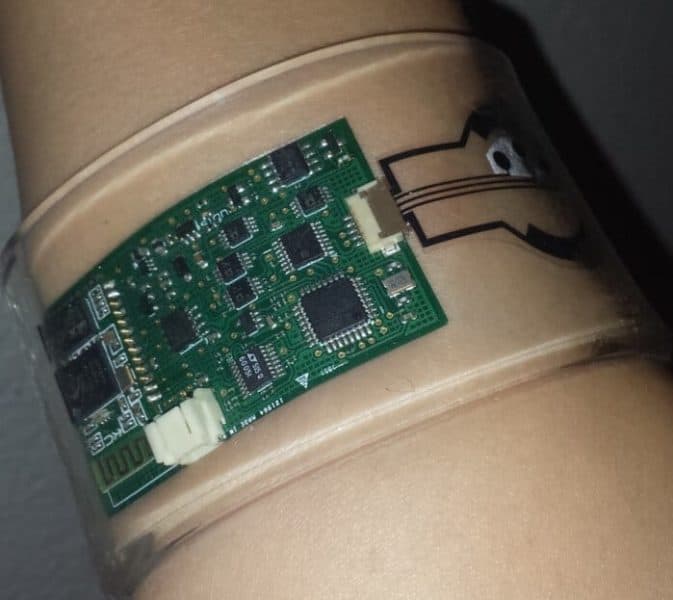A team of researchers at Stanford and the University of California, Berkeley have created a wristwatch-style device that can potentially be used to monitor diseases such as cystic fibrosis or prediabetes.
The device, which detects sweat, was tested on a small group of volunteers who were either healthy or had cystic fibrosis — a genetic disease that causes mucus to build up in the lungs, pancreas and other organs. The small, wearable sensor, described in a paper in the journal Proceedings of the National Academy of Sciences, could distinguish the sweat of those with the disorder from those who were healthy.
“This is a huge step forward,” c0-senior author Carlos Milla, MD, associate professor of pediatrics at Stanford, told me.
As I explained in our press release:
The two-part system of flexible sensors and microprocessors sticks to the skin, stimulates the sweat glands and then detects the presence of different molecules and ions based on their electrical signals. The more chloride in the sweat, for example, the more electrical voltage is generated at the sensor’s surface. The team used the wearable sweat sensor in separate studies to detect chloride ion levels — high levels are an indicator of cystic fibrosis — and to compare levels of glucose in sweat to that in blood. High blood glucose levels can indicate diabetes.
The work is part of a larger program at Stanford to develop methods to continuously monitor people for signs of changing health. Senior author Ron Davis, PhD, professor of biochemistry and of genetics and head of Stanford’s Genome Technology Center, emphasized that the research is more than just the development of a device:
It’s a new way of understanding health — one which depends on continuous monitoring and a better understanding of individual health measures. It’s an approach that could help prevent major illnesses in both individuals and populations.
‘…For example, if I could sense that I’m coming down with a viral infection and my alarm goes off and says, You’re coming down with a virus infection, I should go home and not decide I’ll push through it. It’s not about me, it’s about all of my colleagues.’ If everybody did that, he says, diseases wouldn’t spread so quickly.
If our reporting has informed or inspired you, please consider making a donation. Every contribution, no matter the size, empowers us to continue delivering accurate, engaging, and trustworthy science and medical news. Independent journalism requires time, effort, and resources—your support ensures we can keep uncovering the stories that matter most to you.
Join us in making knowledge accessible and impactful. Thank you for standing with us!

